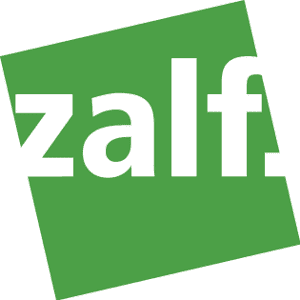

The
Sign up for free.

The Leibniz-Zentrum für Agrarlandschaftsforschung (ZALF) is a non-university research institution dedicated to the development of an economically, ecologically, and socially sustainable agriculture of the future. Founded in the legal form of a non-profit registered association, ZALF has been a member of the Leibniz Association since 1992.
The main mission of ZALF is to make significant contributions to sustainable agriculture by researching complex interrelationships in agro-ecosystems and agricultural landscapes. ZALF conveys scientific findings to affected population groups, professional circles, and the economy, and stands for the interplay of scientific excellence and societal relevance[2][3].
ZALF combines complex landscape data with experimental methods, new technologies, computer-based models, and socio-economic approaches to develop cultivation systems in the landscape context. The research includes processes in soils, plants, and water, as well as interrelationships at the field and landscape level up to global impacts. ZALF operates several research infrastructures, including field trials in Dedelow, Paulinenaue, and Müncheberg[1][2].
ZALF addresses global challenges such as climate change, food security, biodiversity conservation, and resource scarcity. It establishes real laboratories as part of the "Innovation Center for Agricultural System Transformation" (IAT) to promote new forms of cooperation between science, practice, politics, and society. Additionally, ZALF aims for a holistic sustainability management strategy that goes beyond the existing environmental management system[2][3].
ZALF works closely with over 300 institutions in more than 60 countries, including universities, non-university research institutions, companies, and authorities. Special collaborations exist with agricultural environmental institutions in the BRICS countries and with Hessian universities in Gießen, Kassel, and Geisenheim[1][4].
With a team of 501 employees, of which 239 are in science, and a total budget of 40.9 million euros for 2024, ZALF is well positioned to pursue its research goals. Basic funding comes from grants from the state of Brandenburg and the federal government. The scientific director is Prof. Dr. Frank Ewert, and the administrative director is Martin Jank[2].
ZALF is structured through its statutes and its committees, such as the general assembly, the board, and the scientific advisory board, and is committed to equality and equal treatment as well as to a family-friendly personnel policy. It was awarded the "Certificate for the audit berufundfamilie®" in 2020[2].